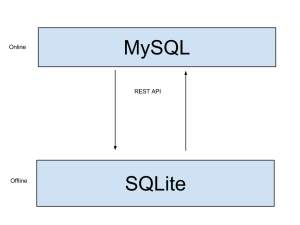One of the first posts on this blog discussed the interest that I had in reading pieces written by writers who lived some 2,500 years ago, mainly those who lived in ancient Rome. The post can be found here.
One of the main things that I found to be interesting about reading the works of those who wrote complex anecdotes in Latin is that the topics they discussed are extremely similar to the topics that are discussed and debated about today. For instance, authors often joked about the cruelty of the government, discussed the meaning of life, and wrote reports on the actions and customs of other nations. As a race and society as a whole, we are often claimed to have advanced by an incredible amount; however, upon analyzing the texts of ancient Roman writers, we learn that, especially with social issues, we have barely turned a pebble.
The Grammar
Before I even delve into the world of social issues and Latin, I want to discuss how much of a benefit learning Latin is from a linguistics perspective. To put things in perspective, most people I know are native English speakers; however, they do not know the inner workings of the language. For instance, ask them to construct a sentence using the pluperfect. Most will just sit and stare. “What’s a pluperfect?”. Exactly.
After learning a good bit of Spanish, I always thought it was weird how they put so much emphasis on the conjugation of verbs. Every time you used a verb you have to conjugate it? How strange!! How naïve I was. We conjugate verbs in English, too! (He runs, I run, they run) – it just took Latin to really hammer this idea into my head.
Latin has also taught me a lot about how other languages are able to work. I always figured that all languages work in a strict subject+verb pattern. That is, just like English. However, Latin showed that word order doesn’t even have to matter! Word order is just a preference in some languages, and endings of words determines what is the subject and what is the verb. This allows authors to declare their own style and allows for a true freedom of language. For instance, take the following example of English and Latin.
I ran with my friends.
Ego cum meis amicis cucurri.
As you can see, the English works in a subject+verb structure, where the additional information is provided after the fact. In Latin, the subject is at the beginning of the sentence, the verb at the end, and all additional information is packed in the middle. It really is different from English and shows the true stylistic differences that exist between the two languages.
Before I get talking about the social implications of Latin, I just want to mention that learning Latin has also allowed me to become more knowledgeable about other things in English such as the cases of words, moods of verbs, tenses of verbs, and many, many word roots that are very interesting. (Presidio is derived from the Latin word Praesedens meaning “stand before” – translating into something that stands before other things or defends!)
The Social Implications
Think of the world. Think about your existence. Think about the people around you. They all have their own standards, morals, thoughts, and ways of life. Now think about the people that existed before you. Do they have their own standards, morals, and thoughts? Surely. Now think about the people that lived in ancient Rome. Do they have standards, morals, and thoughts? Most people would not imagine so. Most people could not even imagine them living in the same way that we live today (I know I have difficulties with this).
Reading Latin opens your mind to this. Reading the thoughts and words of people who lived in ancient Rome makes one come to the realization that even 2,500 years ago, people were just like we are today. They loved their wives, family, and children. They squabbled over the same things. They came home every night for dinner. It is simply hard to imagine that they lived out a daily life, though. One often thinks of Romans in battle, in court, or attending some sort of toga party, but one never thinks of Romans as people who woke up in the morning, pondered the details of life, and went to bed at night.
Isn’t it weird to think about that? Some many thousands of years ago, a whole different set of people walked the Earth, and they thought and ate and used the restroom just like we do today. Realizing this thing was very humbling to me. All of this realization was able to occur due to the stories, opinions, and anecdotes that I read.
Discovering all of these things was a wonderful and unexpected side effect of learning Latin. I believe that it has led me to a much more open mind and has allowed me to look at the world, especially humanity, in a whole new light. Because of this, I recommend that everyone learn Latin. Learning Latin is learning more about the humble origins of modern humanity.
